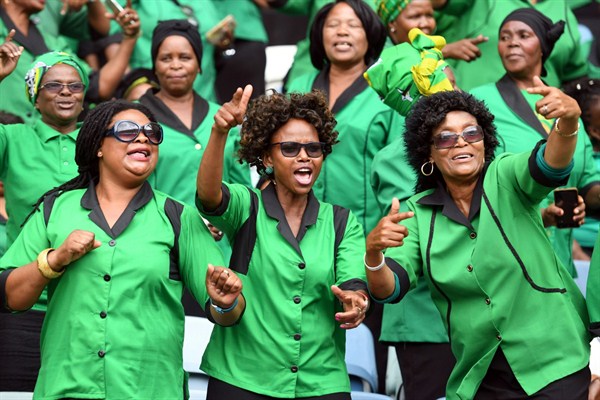Like all elections, South Africa’s upcoming national vote on May 8—the country’s fifth ballot since the end of apartheid—will see rival parties waging a struggle to control the narrative and frame the contest in the best possible terms. Given the change in the leadership of the ruling African National Congress in December 2017, that means much of the campaign will focus on President Cyril Ramaphosa and the extent to which he is delivering his promised “new dawn” in South Africa following what he has called the “nine lost years” of Jacob Zuma.
Restoring the sense of mission and idealism that drove the ANC in the immediate post-apartheid era after 1994 has been central to Ramaphosa’s platform, as he repeatedly invokes the values and ethos of Nelson Mandela. After 15 months in power, and as the figurehead of the ANC campaign, Ramaphosa will own May’s election result, for better or worse depending on the outcome.
The most recent polls offer a decidedly mixed picture for Ramaphosa and the ANC. In early March, the South African Institute of Race Relations poll showed the ANC winning just under 55 percent of the vote nationally, with the opposition Democratic Alliance getting about 22 percent. If replicated in May, those numbers would represent a major setback for Ramaphosa, particularly if it is accompanied by the loss of the ANC’s overall majority in Gauteng, South Africa’s most populous province and its economic hub, and where the ANC polled at just over 41 percent early last month.

